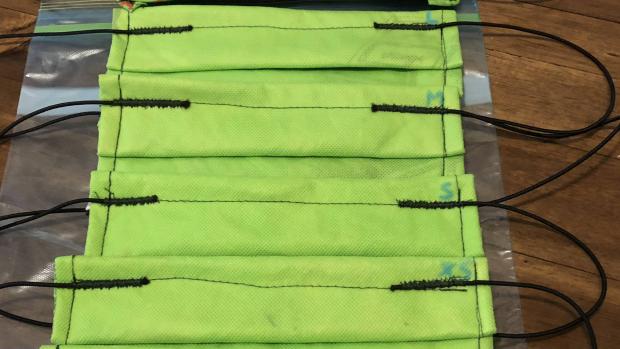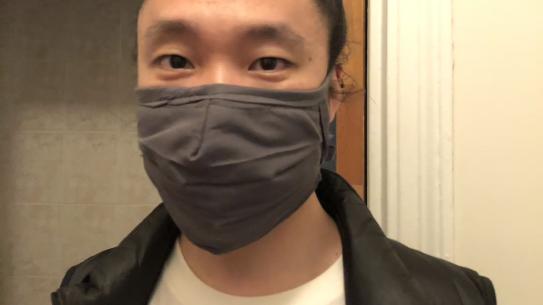A group of makers turns to making masks

Professor Kathleen McDermott is testing and identifying patterns for DIY face masks that will be most accessible to student makers.
Kathleen McDermott, an industry assistant professor in Tandon’s Integrated Digital Media (IDM) program, has long been fascinated by the intersections of technology and textile arts, and her projects often employ a mixture of the two to make strong societal statements: a dress that expands to ensure that the wearer has ample personal space, for example, or a scarf with a built-in sensor that automatically covers the wearer’s face in the presence of pollutants such as car exhaust. Such projects take on added resonance in the face of a global pandemic.
“I’ve been involved in online textile communities and open-source tech communities, and with the recent debate about the efficacy of wearing masks for the average person, it was interesting to explore how those groups were reacting to the issue,” McDermott says.
Now, with the CDC affirmatively calling for the use of cloth face coverings to help slow the spread of COVID-19, her exploration of homemade masks has taken on increased significance, particularly in light of the pressing need to reserve medical-grade masks for the hospital personnel on the frontlines of caring for COVID-19 patients.
McDermott has been testing a variety of patterns produced by DIY communities: those made of non-woven polypropylene (NWPP), which may offer more protection than cotton but is harder to find right now; those with pockets into which filters can be inserted; and covers that can be made for medical professionals seeking to extend the lives of their increasingly hard-to-procure N-95 masks. Her goal is to identify patterns that will be most accessible to student makers.
With the help of Gabriella Cammarata, an IDM graduate who now serves as the program’s studio research coordinator, she compiled those patterns, along with a plethora of other mask-making information, on the website of the Proto Lab, IDM’s fabrication space. The two caution that no homemade mask will ever be as effective as a medical-grade model, but they acknowledge that the current crisis calls for doing the best we can, with the materials available to us.
If you have the fabric and the willingness, McDermott can supply the encouragement, sense of community, and practical advice. Each Friday, from 4 to 5 pm, Eastern Standard Time, she’ll be holding a communal “office hour” via Zoom for any student making DIY masks.


